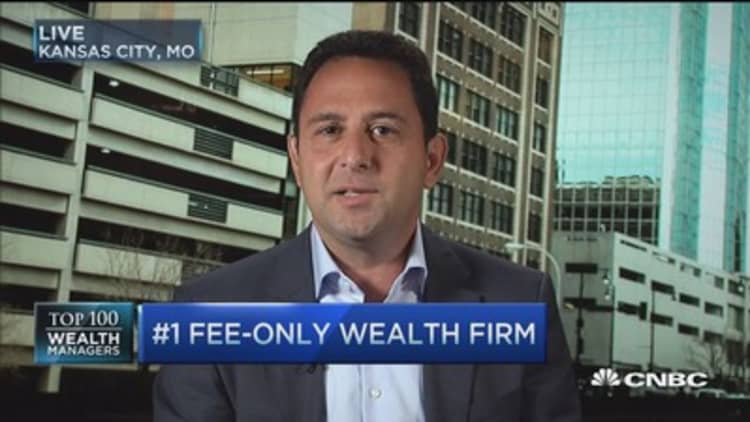The fiduciary debate is dominating the political agenda in the financial advisory world, but it isn't the only unsettled business in the industry.
An equally important issue is making sure that fiduciary investment advisors—who are required to always act in the best interests of their clients—are actually doing that.
It's almost universally acknowledged that the current regime for examining the approximately 11,500 registered investment advisors in the country is inadequate. The Securities and Exchange Commission—the primary regulator of the industry—examines about 10 percent of those RIA firms annually, and state securities regulators are now responsible for overseeing firms with less than $100 million in assets.
There is still, however, a major gap in oversight. The average firm is examined once every 10 years, and about 40 percent of firms nationwide have never been examined, according to various industry data.
"The SEC exams tend to be thorough and effective; they're just not done often enough," said Blaine Aikin, CEO of fiduciary consultant fi360.
In a speech earlier this year, SEC Chairman Mary Jo White linked the two issues of RIA examinations and a uniform fiduciary standard, suggesting that a solution for the former should accompany any new rule-making on the latter.
Read MoreAre you paying commissions to your advisor?
The lack of oversight of investment advisors is a major problem for the industry and the investors it serves, suggested Barbara Roper, director of investor protection at the Consumer Federation of America.
"If you create a regulatory environment without enough ongoing oversight, you invite bad actors into the space," said Roper, who supports a uniform fiduciary standard for all financial advisors as well as increased funding for SEC examinations of investment advisors. "It's not hard to become an RIA."
Indeed, Bernie Madoff, who executed what's thought to be the biggest Ponzi scheme in U.S. history, became an RIA near the end of his career.
The CNBC editorial team presents our second annual list of the Top 100 Fee-Only Wealth Management Firms.
The two simplest options for financing more and better examinations of investment advisors, however, now appear off the table. The first—increasing the SEC budget to hire more examiners and devote more resources to the job—won't happen with a Republican majority in Congress, industry observers said.
"This Congress has clearly expressed a lack of faith in the SEC regarding its overall budget and as it pertains to the issue of RIA examinations," said Knut Rostad, president of the Institute for the Fiduciary Standard.
The logical alternative of instituting user fees, where RIA firms themselves would cover the cost of SEC examinations, has also been shelved despite the support of RIA industry groups like the Financial Planning Association and the Investment Advisor Association.
Read MoreWhat is a hybrid advisor?
It didn't help that the cause was championed by ranking Democratic member of the House Financial Services Committee Rep. Maxine Waters, but Congress also does not want to lose any control over the primary regulator of one of the most politically active industries in the country.
"A lot of lobbying money comes from the financial services industry," fi360's Aikin said. "Congress doesn't want to lose any power of the purse over the SEC."
The two other options are to have state securities regulators shoulder more of the burden or to have third parties do the examinations.
Explore each of CNBC's Top 100 Fee-Only Wealth Management Firms for 2015 in more detail here.
The idea of the states taking on the work may be more palatable to Republicans, but there is wide discrepancy in the abilities of state regulators to handle it.
The Dodd-Frank Act already increased the responsibility of state securities regulators for RIA examinations when it raised the threshold for state oversight of firms to $100 million in assets under management. Some have suggested the threshold could be raised to $500 million in assets, leaving the SEC to handle examinations of bigger, more complicated firms.
While states such as Massachusetts and Illinois get high marks from industry analysts for their examination programs, others do not.
"Some states hardly have oversight programs," said Brian Hamburger, founder of compliance consulting firm MarketCounsel. "New Jersey collects papers from firms every year and puts them in a filing cabinet. That's an exam in New Jersey."
Read MoreHow advisors make the Top 100 list
If the states were to take on more of the examination work, it would be a major political effort getting them to agree on a uniform process for handling it. "There's a lot of diversity among the states with this," said Aikin. "It would be hard to herd those cats."
The last option is to have other external organizations conduct the reviews. In May, SEC commissioner Daniel Gallagher said that RIA firms should be required to hire third parties to give their firms a seal of approval.

Aikin suggested that outside consultants could conduct limited engagements and determine if firms represent a high risk for fraud or compliance problems. If examiners find red flags—such as an advisor not using an outside custodian for client assets—they could alert the SEC to take a closer look.
There are challenges to that approach, too. The SEC would have to determine the scope of the examination, ensure that the exams are consistent across the industry and deal with conflicts of interest between firms, examiners and the investing public.
It also might open the door for the Financial Industry Regulatory Authority to assume the role. Finra, the self-regulatory organization that oversees broker-dealers, has a large staff and plenty of resources and looks like a logical candidate to perform RIA examinations.
Its regulatory model, however, is rules-based and is focused on managing conflicts of interest between brokers and clients. According to virtually every RIA in the country, it isn't suitable for the principles-based model of fiduciary regulation.
"The single most unifying issue for RIAs is that they don't want to be regulated by Finra," Rostad said.
With Washington still essentially in gridlock, there's a good chance that RIAs won't be facing more vigorous oversight from anyone anytime soon. "Unfortunately, we'll probably need another crisis for something to change," said Rostad.
—By Andrew Osterland, special to CNBC.com





